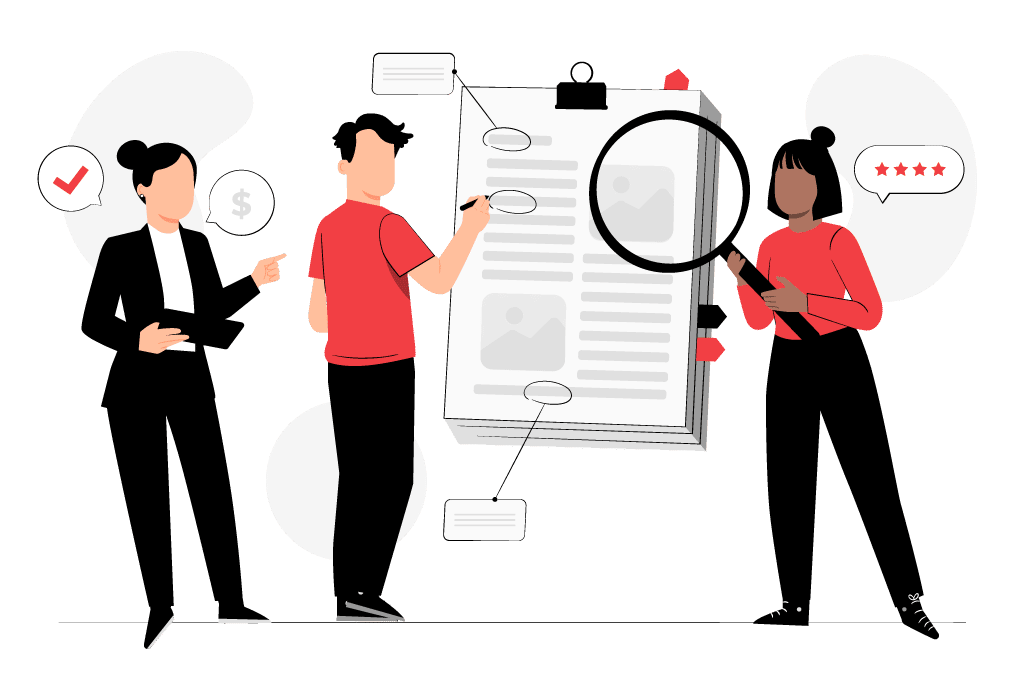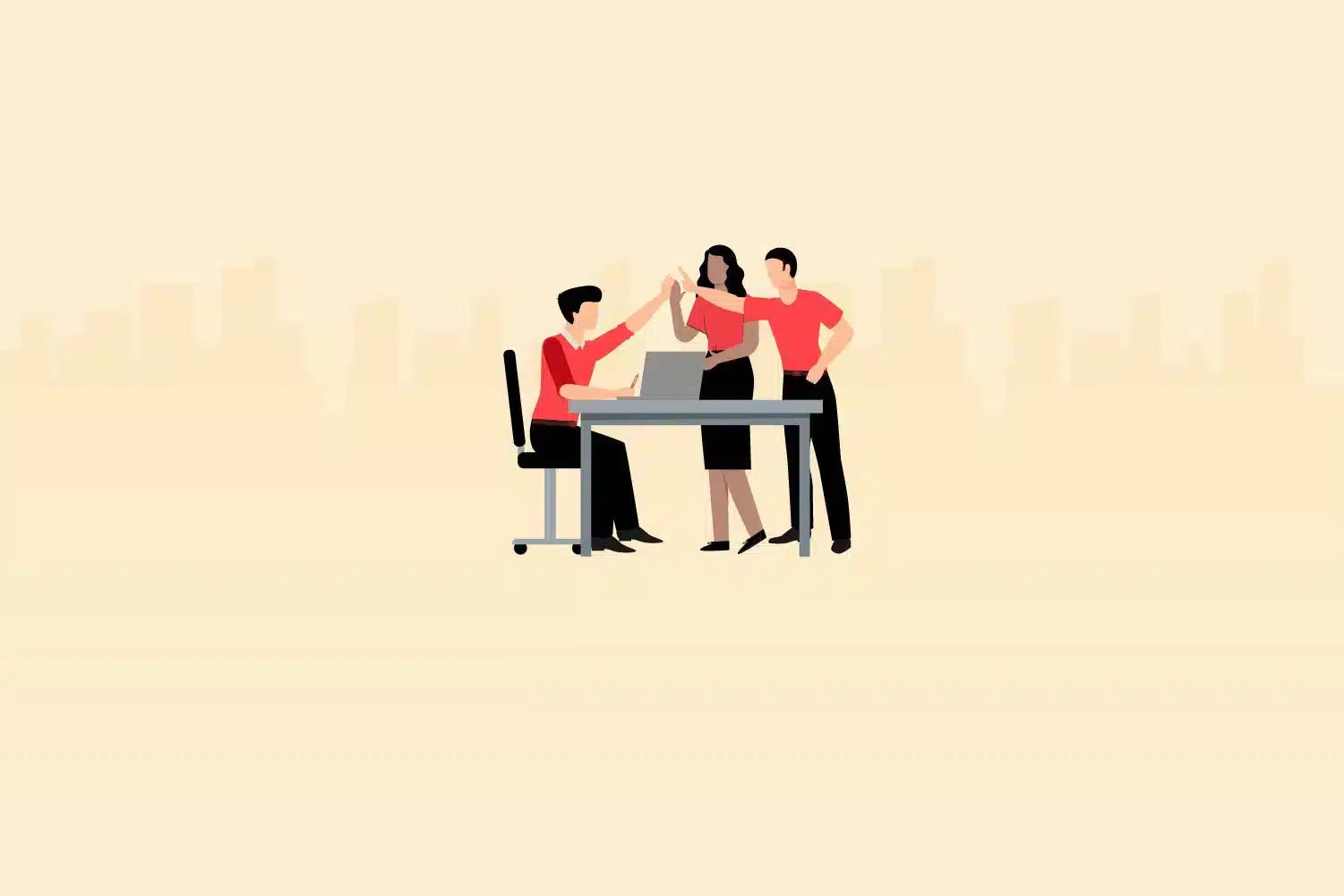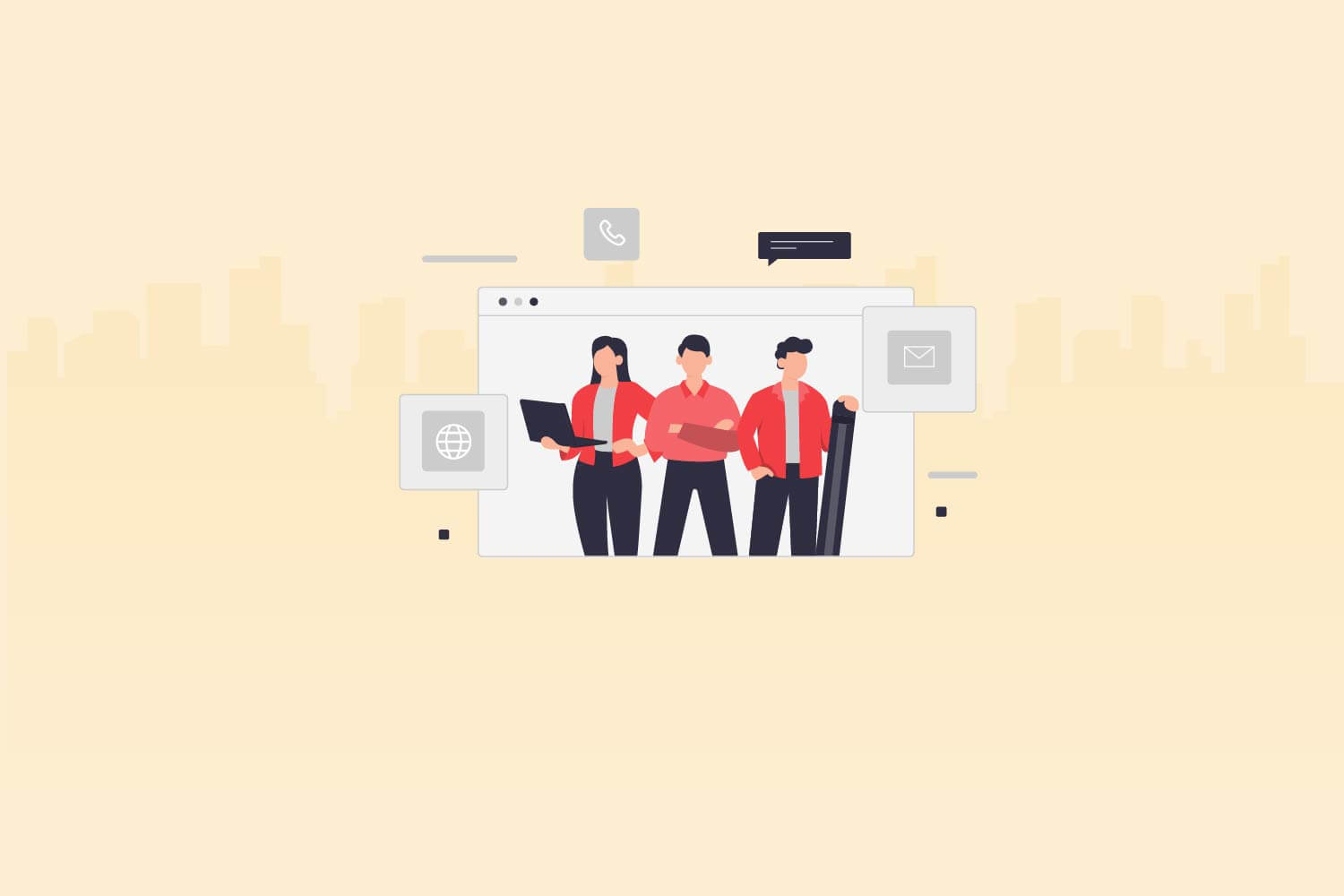The landscape of recruiting Research and Development (R&D) Assistants has witnessed an intriguing shift in recent years, driven by the growing emphasis on innovation and technological advancements. In today’s fast-paced business environment, companies across industries are recognizing the pivotal role R&D Assistants play in driving scientific discoveries, product development, and overall organizational growth.
As HR professionals and CXOs navigate the evolving recruitment landscape, it becomes crucial to understand the latest trends and analytics that shape the hiring process for these key positions. This brief aims to provide valuable insights into the current recruiting trends for R&D Assistants, shedding light on the strategies and considerations that can help identify top talent in this highly competitive field.
Here are the top 60 Research and Development Assistant interview questions to ask job applicants:
15 general interview questions for the Research and Development Assistant
- Can you describe your experience in conducting research and development projects? What were some of the key projects you have worked on?
- How do you stay updated with the latest advancements and trends in your field of expertise?
- Can you walk us through your approach to designing and executing experiments or tests?
- How do you ensure accuracy and precision in your research methodologies?
- Can you provide an example of a challenging problem you encountered during a project and how you resolved it?
- How do you collaborate with other team members and stakeholders in an R&D environment?
- Describe your experience in analyzing and interpreting complex data sets. What tools and techniques do you employ?
- How do you prioritize tasks and manage your time effectively when working on multiple projects simultaneously?
- Can you discuss your experience with regulatory compliance and adherence to ethical standards in research?
- Tell us about a time when you had to adapt your research approach due to unexpected changes or constraints. How did you handle it?
- How do you approach documentation and record-keeping in an R&D setting? Why is it important?
- Describe your experience in presenting research findings to both technical and non-technical audiences. How do you tailor your communication style?
- Can you share an example of a successful innovation or improvement you implemented as part of a research project?
- How do you evaluate the feasibility and potential impact of new research ideas or concepts?
- What motivates you to work in an R&D role, and how do you see yourself contributing to our organization’s research initiatives?
5 sample answers to general interview questions for the Research and Development Assistant
- Can you describe your experience in conducting research and development projects? What were some of the key projects you have worked on
Look for: Demonstrated experience in planning, executing, and managing R&D projects, as well as a strong understanding of the scientific method and experimental design.
Example answer: “In my previous role as an R&D Assistant at XYZ Pharmaceuticals, I was responsible for overseeing various research projects. One of the key projects I worked on was the development of a new drug formulation. I designed and conducted experiments to optimize the drug’s formulation and dosage, working closely with the research team and analyzing the results. Through this project, I gained hands-on experience in developing protocols, ensuring data accuracy, and collaborating with cross-functional teams to meet project objectives.”
- How do you stay updated with the latest advancements and trends in your field of expertise?
Look for: Demonstrated commitment to continuous learning, and engagement with industry publications, conferences, and professional networks.
Example answer: “To stay updated with the latest advancements in my field, I regularly attend industry conferences and seminars. I also subscribe to relevant scientific journals and publications, keeping myself informed about cutting-edge research and emerging trends. Additionally, I actively participate in online forums and discussion groups where experts share insights and exchange knowledge. This continuous learning approach allows me to bring fresh ideas and innovative perspectives to my work.”
- How do you collaborate with other team members and stakeholders in an R&D environment?
Look for: Strong communication and interpersonal skills, ability to work effectively in cross-functional teams, and experience in managing stakeholder relationships.
Example answer: “Collaboration is essential in an R&D environment, and I prioritize open communication and teamwork. In my previous role, I actively engaged with scientists, engineers, and other stakeholders to exchange ideas, provide progress updates, and address any challenges. I organized regular team meetings, facilitated brainstorming sessions, and ensured that everyone’s expertise was leveraged effectively. By fostering a collaborative environment, we were able to enhance productivity, drive innovation, and achieve project milestones.”
- Describe your experience in analyzing and interpreting complex data sets. What tools and techniques do you employ?
Look for: Proficiency in data analysis techniques, familiarity with statistical software, and the ability to derive meaningful insights from data.
Example answer: “Throughout my career, I have gained extensive experience in analyzing complex data sets. I am proficient in using statistical software such as R and Python to perform data manipulation, hypothesis testing, and regression analysis. For instance, in a recent research project, I collected and analyzed a large dataset to assess the effectiveness of a new chemical compound in inhibiting tumor growth. By employing data visualization techniques and applying statistical tests, I was able to identify significant correlations and draw valuable conclusions, contributing to the project’s success.”
- How do you approach documentation and record-keeping in an R&D setting? Why is it important?
Look for: Attention to detail, organization skills, and the ability to maintain accurate and well-documented records to ensure reproducibility and compliance.
Example answer: “Documentation and record-keeping are vital aspects of my work as an R&D Assistant. I maintain meticulous records of experimental protocols, observations, and results. I understand the importance of clear and comprehensive documentation for reproducibility, quality control, and regulatory compliance. In my previous role, I implemented an electronic lab notebook system, which streamlined data organization and retrieval, reducing errors and facilitating efficient collaboration among team members. This emphasis on documentation ensures that critical information is readily available and serves as a valuable resource for future research and development endeavors.”
15 behavioral interview questions for a Research and Development Assistant
- Tell me about a time when you had to juggle multiple research projects simultaneously. How did you prioritize your tasks and ensure the timely completion of each project?
- Describe a situation where you encountered an unexpected obstacle or challenge during a research project. How did you approach and overcome it?
- Can you provide an example of a time when you collaborated with colleagues from different disciplines or departments to achieve a research goal? How did you ensure effective communication and collaboration?
- Share an experience where you successfully implemented an innovative idea or approach to improve a research process or methodology. What was the outcome?
- Tell me about a time when you faced conflicting data or results during an experiment or analysis. How did you reconcile the discrepancies and determine the most accurate interpretation?
- Describe a project where you had to adhere to strict regulatory or ethical guidelines. How did you ensure compliance while still achieving your research objectives?
- Share an experience where you had to troubleshoot and resolve technical issues or equipment failures during a research project. How did you handle the situation?
- Describe a time when you had to present complex research findings to a non-technical audience. How did you adapt your communication style to ensure understanding and engagement?
- Tell me about a project where you conducted a comprehensive literature review to inform your research approach and identify gaps in existing knowledge. How did you leverage the literature to guide your work?
- Share an experience where you had to analyze a large dataset or perform statistical analysis for a research project. How did you ensure the accuracy and validity of your analysis?
- Describe a time when you had to make a difficult decision during a research project, balancing conflicting priorities or limited resources. How did you approach the decision-making process?
- Tell me about a situation where you had to work under tight deadlines and deliver high-quality results. How did you manage your time effectively and ensure the completion of the project on time?
- Describe an instance where you encountered a failure or setback in a research project. How did you handle it, and what did you learn from the experience?
- Share an experience where you had to adapt your research methodology or approach due to new information or changing project requirements. How did you adjust your plans and communicate the changes to your team?
- Tell me about a time when you demonstrated leadership skills in a research project. How did you motivate and guide team members to achieve project objectives?
5 sample answers to behavioral interview questions for the Research and Development Assistant
- Tell me about a time when you had to juggle multiple research projects simultaneously. How did you prioritize your tasks and ensure the timely completion of each project?
Look for: Effective multitasking skills, the ability to prioritize tasks, and manage time efficiently.
Example answer: “In my previous role, I was responsible for managing multiple research projects concurrently. One instance was when I had to oversee three different projects with tight deadlines. To prioritize my tasks, I created a detailed project plan with specific milestones and deadlines for each project. I assessed the complexity and urgency of each task and allocated time accordingly. I also communicated with team members to ensure a shared understanding of priorities and to avoid bottlenecks. By organizing my workload and staying focused, I successfully completed all projects on time, while maintaining the quality of research outcomes.”
- Describe a situation where you encountered an unexpected obstacle or challenge during a research project. How did you approach and overcome it?
Look for: Problem-solving skills, adaptability, and resilience in the face of challenges.
Example answer: “During a research project, we encountered unexpected results that contradicted our initial hypotheses. It was a critical point in the study, and we needed to understand the cause of the discrepancy. I gathered the team and proposed a thorough analysis of our experimental procedures, variables, and data collection methods. Through collaborative discussions and brainstorming, we identified a procedural error that had occurred during sample preparation. We immediately rectified the issue, re-conducted the experiment, and achieved consistent results. This experience taught me the importance of critically reviewing procedures and maintaining open lines of communication within the team to overcome unexpected challenges.”
- Share an experience where you successfully implemented an innovative idea or approach to improve a research process or methodology. What was the outcome?
Look for: Creativity, innovative thinking, and the ability to drive process improvements.
Example answer: “In one project, we were struggling with a time-consuming and labor-intensive process of data analysis. Recognizing the need for efficiency, I researched and proposed the implementation of data analysis software that could automate certain steps and expedite the analysis. After gaining approval, I worked closely with the IT department to integrate the software into our research workflow. As a result, we significantly reduced the time required for data analysis, increased accuracy, and enabled a more comprehensive exploration of our datasets. This improvement not only saved time but also allowed us to allocate more resources to other critical aspects of the project.”
- Describe a time when you had to present complex research findings to a non-technical audience. How did you adapt your communication style to ensure understanding and engagement?
Look for: Strong communication skills, and ability to convey complex concepts to diverse audiences.
Example answer: “In a recent project, I was tasked with presenting our research findings to a group of stakeholders from various departments who had limited technical backgrounds. To ensure understanding and engagement, I adopted a visual approach by creating clear and concise slides with infographics and illustrations. I also focused on simplifying complex terminology and concepts into relatable analogies and real-life examples. During the presentation, I encouraged questions and actively listened to ensure that everyone was following along. The positive feedback I received indicated that the audience grasped the key findings and implications, fostering productive discussions and potential collaborations.”
- Tell me about a situation where you had to work under tight deadlines and deliver high-quality results. How did you manage your time effectively and ensure the completion of the project on time?
Look for: Time management skills, ability to handle pressure, and commitment to delivering quality work.
Example answer: “In a previous research project, we had a tight deadline to submit a proposal for a grant application. I recognized the need for efficient time management to ensure high-quality results. I broke down the project into smaller tasks, created a timeline, and set specific deadlines for each milestone. I also coordinated with team members to delegate responsibilities and collaborate effectively. To maintain focus, I implemented time-blocking techniques, allocated uninterrupted periods for crucial tasks, and minimized distractions. By adhering to the timeline, effectively managing resources, and maintaining open lines of communication, we successfully submitted the grant proposal before the deadline, receiving positive feedback for the thoroughness and quality of our work.”
15 personality interview questions for the Research and Development Assistant
- How do you handle ambiguity and uncertainty in a research environment where outcomes are not always guaranteed?
- Describe a time when you had to work independently on a research project. How do you stay motivated and organized when working without constant supervision?
- Can you tell me about a time when you had to collaborate with a challenging team member or colleague? How did you handle the situation?
- How do you approach learning from failures or setbacks in your research work? Can you provide an example?
- Describe your approach to staying organized and managing multiple priorities in a fast-paced R&D setting.
- How do you handle pressure and tight deadlines in a research environment? Can you provide an example of a time when you successfully managed such situations?
- Can you describe a situation where you needed to think creatively or outside the box to solve a research problem or overcome a challenge?
- How do you ensure attention to detail and maintain accuracy in your research work?
- Can you tell me about a time when you had to make a decision with limited data or incomplete information? How did you approach it?
- Describe your approach to adapting to new technologies or methodologies in the research field.
- How do you stay updated with emerging trends and developments in your specific research area?
- Can you discuss a time when you had to handle conflicting priorities or requests from multiple stakeholders? How did you navigate those situations?
- Describe your approach to fostering a collaborative and inclusive work environment within a research team.
- How do you maintain a balance between maintaining scientific rigor and meeting project deadlines or business objectives?
- Can you tell me about a time when you had to present your research findings to a skeptical audience? How did you handle their doubts or concerns?
5 sample answers to personality interview questions for Research and Development Assistant
- How do you handle ambiguity and uncertainty in a research environment where outcomes are not always guaranteed?
Look for: Adaptability, resilience, and the ability to remain focused and motivated despite uncertainties.
Example answer: “I thrive in environments with ambiguity and uncertainties because I view them as opportunities for exploration and growth. In a previous research project, we encountered unexpected results that deviated from our initial hypotheses. Instead of becoming discouraged, I saw it as a chance to delve deeper into the underlying mechanisms and refine our approach. I collaborated with my team to brainstorm alternative explanations, designed follow-up experiments and carefully analyzed the data. This experience taught me the importance of maintaining an open mind, embracing unexpected outcomes, and leveraging them to gain new insights.”
- Can you describe a time when you had to collaborate with a challenging team member or colleague? How did you handle the situation?
Look for: Strong interpersonal skills, conflict resolution abilities, and the ability to foster productive collaborations.
Example answer: “During a research project, I had the opportunity to work with a team member who had differing opinions and a strong personality. Recognizing the importance of open communication and effective collaboration, I approached the situation with empathy and active listening. I sought to understand their perspective and find common ground. By finding areas of agreement, respecting each other’s expertise, and maintaining a professional demeanor, we were able to develop a constructive working relationship. Ultimately, our collaboration resulted in valuable contributions to the project, showcasing the significance of effective teamwork and finding common goals despite initial challenges.”
- How do you approach learning from failures or setbacks in your research work? Can you provide an example?
Look for: Resilience, a growth mindset, and the ability to extract lessons from failures.
Example answer: “Failures and setbacks are inherent in research, and I see them as opportunities for learning and improvement. In one project, we encountered technical issues that led to the loss of a significant amount of data. While it was disappointing, I immediately assessed the situation, identified the root causes, and developed protocols to prevent similar incidents in the future. I engaged in discussions with team members to reflect on the challenges and implement necessary changes. This experience taught me the importance of meticulous record-keeping, data backup strategies, and thorough quality control measures. It reinforced my commitment to continuous improvement and resilience in the face of obstacles.”
- How do you ensure attention to detail and maintain accuracy in your research work?
Look for: Strong organizational skills, meticulousness, and a commitment to quality and precision.
Example answer: “Maintaining attention to detail and accuracy is crucial in research to ensure reliable and valid results. I have developed a systematic approach to data collection and analysis, starting with carefully designing experiments and protocols. I pay close attention to variables, control groups, and data integrity throughout the process. I also utilize validation techniques and perform meticulous data verification to minimize errors. Additionally, I maintain a well-organized electronic lab notebook to document each step of the research process thoroughly. This attention to detail allows me to identify trends, spot anomalies, and ensure the robustness of my findings.”
- Can you tell me about a time when you had to make a decision with limited data or incomplete information? How did you approach it?
Look for: Sound judgment, critical thinking skills, and the ability to make informed decisions despite uncertainty.
Example answer: “In a research project, I encountered a situation where I had to make a critical decision with limited data. Recognizing the urgency, I engaged in a comprehensive literature review to gather relevant information and identify potential approaches. I also consulted with subject matter experts and sought advice from colleagues to gain additional perspectives. While the data were incomplete, I relied on my analytical skills and experience to make an informed judgment based on the available evidence. I mitigated the uncertainty by incorporating risk analysis and implementing measures to monitor and adjust the decision as more data became available. This experience reinforced my ability to make thoughtful decisions in ambiguous situations.”
When should you use skill assessments in your hiring process for Research and Development Assistant?
Skill assessments can be highly valuable in the hiring process for a Research and Development (R&D) Assistant position. Assessments provide objective and standardized methods to evaluate a candidate’s specific skills and abilities required for the role. By incorporating skill assessments, employers can gain deeper insights into a candidate’s capabilities, ensuring a better fit for the position.
Assessments are important because they help validate the skills and qualifications claimed by candidates in their resumes and interviews. They provide an opportunity to gauge the practical application of skills relevant to the R&D Assistant role, such as research methodology, data analysis, technical proficiency, problem-solving, and critical thinking abilities. Skill assessments can also help identify any gaps or areas where additional training may be required, aiding in effective onboarding and skill development.
Various assessments can be used to evaluate the skills of R&D Assistant candidates. These may include:
- Technical proficiency tests
Assess candidates’ knowledge and competence in relevant technical areas such as laboratory techniques, research methodologies, statistical analysis, programming languages, or software applications commonly used in the field.
- Data analysis exercises
Evaluate candidates’ ability to analyze and interpret data, identify trends, draw meaningful conclusions, and present findings in a clear and concise manner.
- Problem-solving scenarios
Present candidates with real or hypothetical research problems and assess their ability to apply critical thinking, logical reasoning, and creativity to devise innovative solutions.
- Research simulations or case studies
Provide candidates with realistic research scenarios or case studies to assess their ability to plan and execute research projects, make informed decisions, and troubleshoot challenges.
- Written or verbal communication assessments
Evaluate candidates’ communication skills by assessing their ability to effectively articulate complex ideas, present research findings, and communicate with stakeholders in a clear and concise manner.
By incorporating skill assessments tailored to the specific requirements of the R&D Assistant role, employers can make more informed hiring decisions, ensuring that candidates possess the necessary skills to contribute effectively to research projects and drive innovation within the organization.
Use our interview questions and skill tests to hire talented Research and Development Assistant
Unlock the potential of your hiring process with Testlify’s comprehensive skill assessments and interview questions specifically designed for Research and Development Assistant.
Our extensive test library offers a wide range of assessments, including cognitive function, personality, situational judgment, programming, and more. By leveraging these assessments, you can objectively evaluate candidates’ abilities, ensuring you shortlist the most talented individuals efficiently.
To further enhance your hiring process, we invite you to book a free 30-minute live demo. Our expert team will guide you through the platform, showcasing relevant skill tests tailored to your hiring needs. With our support, you can streamline candidate selection, saving valuable time and resources.
Ready to find the perfect fit for your Research and Development Assistant role? Testlify provides the tools you need to make informed hiring decisions. Explore our skill assessments and interview questions today to uncover exceptional talent for your team.








